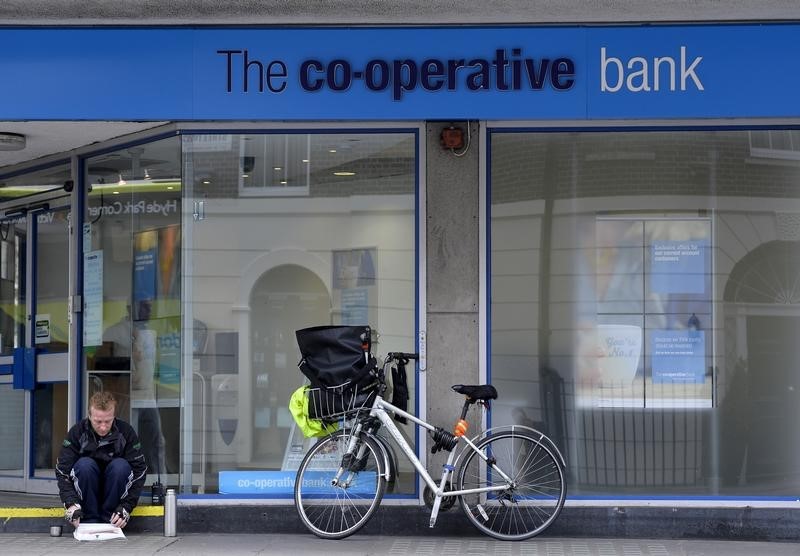By Matt Scuffham
LONDON (Reuters) - Britain's Co-Operative Bank warned it wouldn't make a profit until at least 2017 after its pretax loss nearly trebled in the first half, making a stock market listing unlikely in the short term.
The bank originally planned to list on the London Stock Exchange in 2013 after it fell under the control of bondholders as part of a restructuring to plug a 1.5 billion pound capital hole. But the plan was put on hold when it required a further 400 million capital injection.
Chief Executive Niall Booker told reporters the bank was unlikely to pursue an initial public offering (IPO) until its turnaround was further advanced.
"We won't be profitable in 2015 and we won't be profitable in 2016 either. Personally I think it will be a wee bit of time before we're ready to IPO. It would be good to be closer to profitability," Booker said.
The CEO also warned that the bank's recovery from its near-collapse in 2013, which stemmed from bad commercial real estate loans, remained challenging.
"Addressing legacy issues will continue to dominate financial performance for some time and there is considerable work ahead towards a full recovery," he said.
The crisis led to bondholders taking an 80 percent stake in the bank, with long-time owner, the mutual Co-operative Group, relegated to a minority holding with 20 percent.
Booker said there had been "no meaningful discussion" about hedge funds buying the remainder of the Co-op Group's stake. However, he said the bank could play a part in consolidation among Britain's smaller or so-called challenger banks.
"We've always said that we think there will be some consolidation in the challenger market. We talk to people from time to time," he said.
The bank, the only UK lender to fail a "stress test" of its finances by Britain's financial regulator last year, said on Thursday it made a wider pretax loss of 204 million pounds in the first half, compared with 77 million a year before.
It said the result reflected reduced income, losses on the sale of assets and the rising cost of turning the business around.
Co-Op Bank booked a 38 million pound loss on asset sales and saw costs relating to its turnaround rise rising to 102 million pounds, on the back of investment in its systems and processes.
